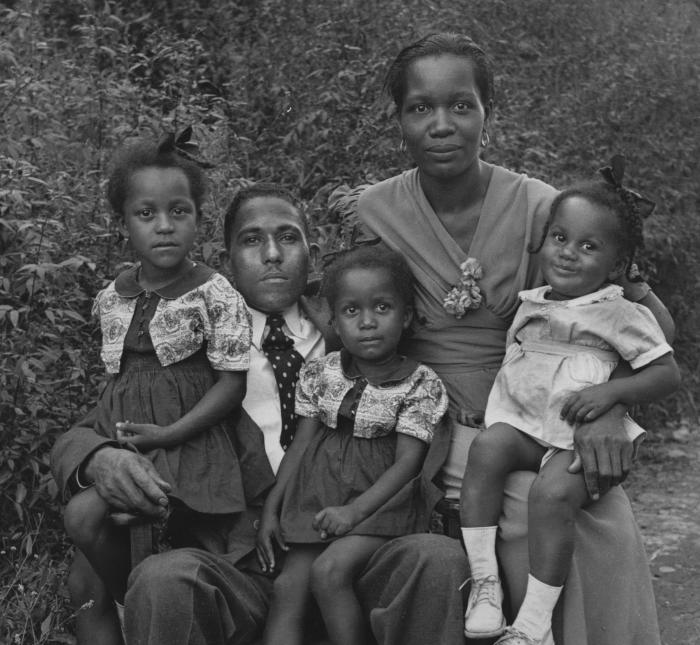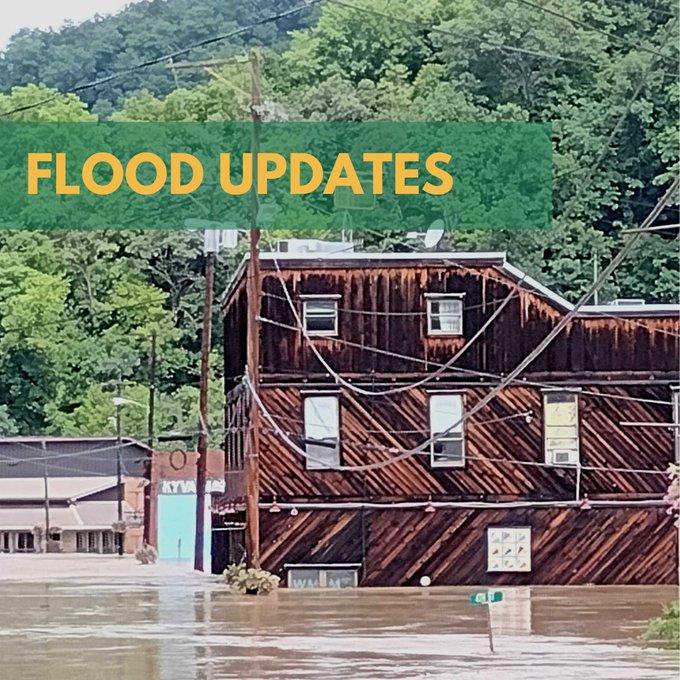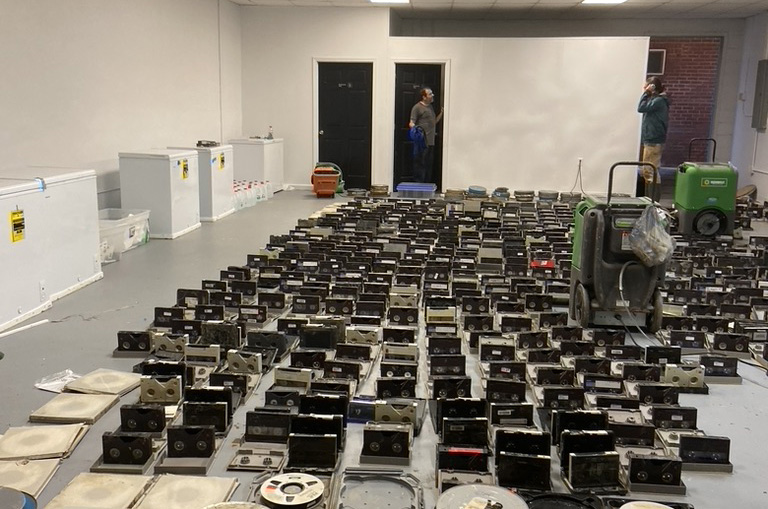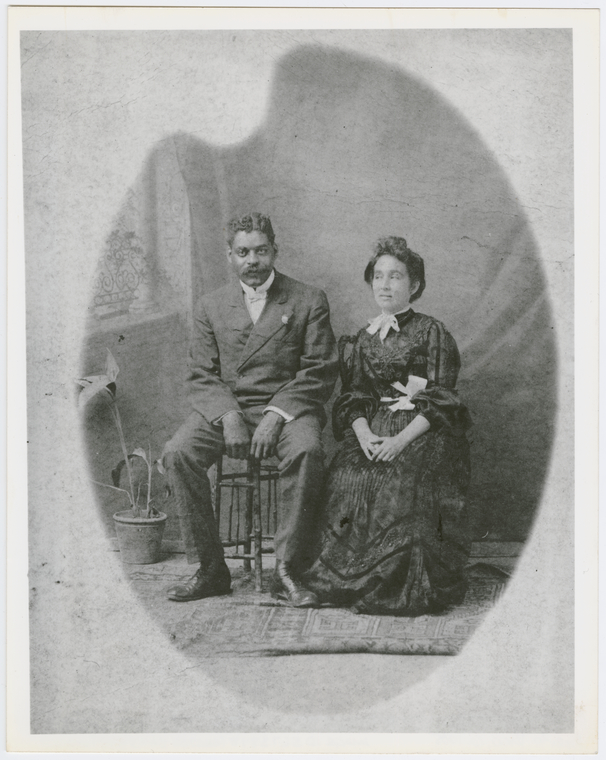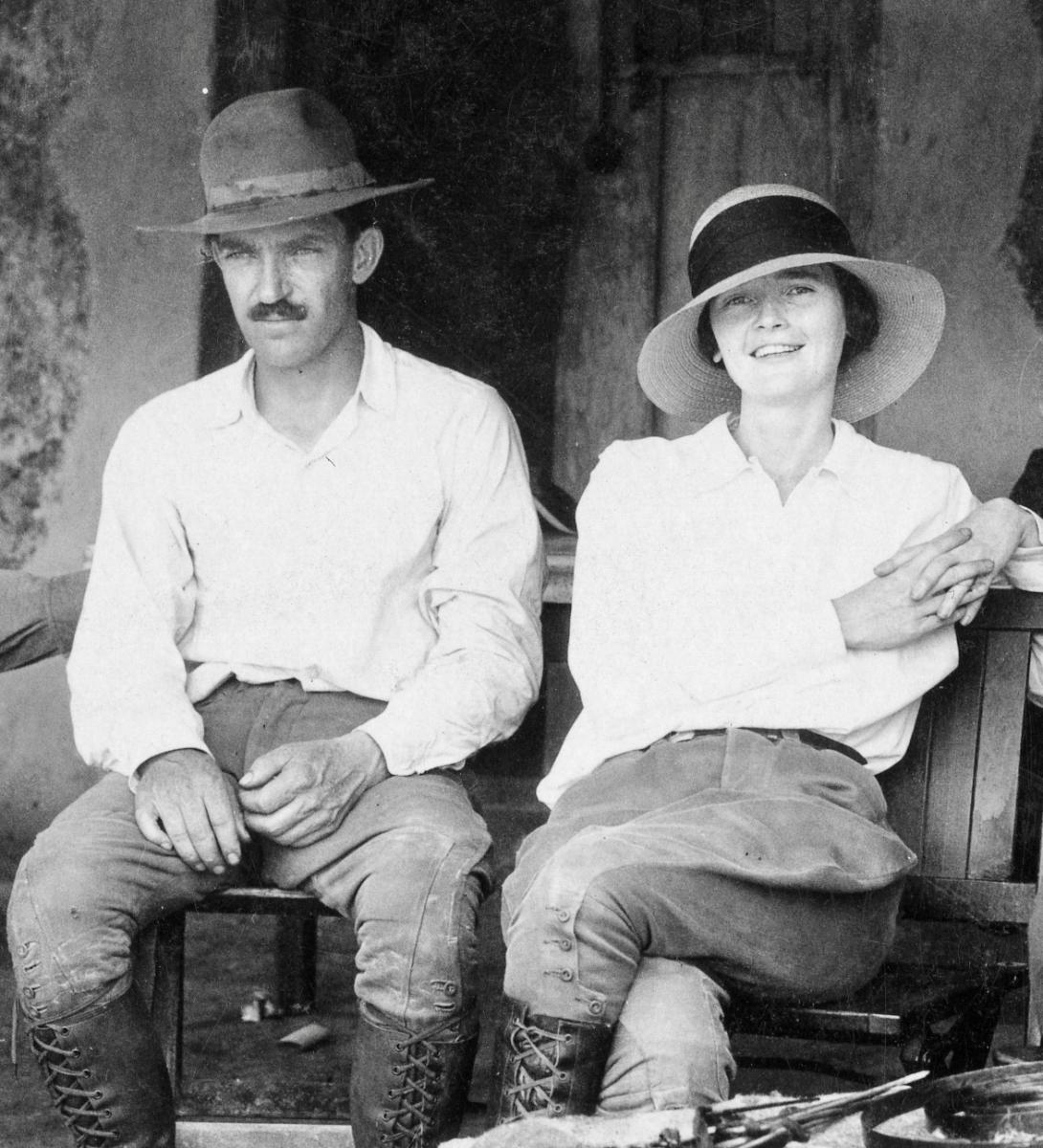
NHPRC News
February 2023
Inside the Commission
Flood Recovery at Appalshop
In the heart of eastern Kentucky, Appalshop documents the traditions, history, stories, and arts of Appalachia. Founded in 1969, Appalshop maintains moving image and sound recording media, photography, the arts, and paper archives to accomplish its work in this region. Over the years, the NHPRC has awarded two grants to Appalshop, including a project to process, re-house, and make accessible the audio-visual recordings of Mountain Community Television (1972-78) and the Headwaters Television series (1981-85).
Late last July more than three-quarters of Kentucky suffered record rainfall, hitting eastern Appalachian counties the hardest and severely flooding the Appalshop’s building in Whitesburg. You can read more about the unprecedented disaster (and how to help) on the Appalshop website.
Eighty percent of Appalshop Archive’s film, video, and audio collections were affected by the floodwaters. These materials include interviews with legendary musicians, authors, artists, scholars, and mountain people from all walks of life. Several photo collections were damaged as well, including 3,600 photograph negatives in the “Pictureman” Mullins collection, which had received an earlier NHPRC grant.
Undertaking the rescue and preservation of its damaged records, Appalshop Archives faced a daunting task. While a great number of archival items had been preserved over the years, with copies stored elsewhere, many had not yet been transferred to contemporary, accessible formats.
Thanks to emergency support from archival specialists and an incredible team of volunteers, Appalshop Archives have been able to carry out a complex recovery effort to empty the contents of its warehouse and vault, sort materials according to their needs (e.g., some items were refrigerated while others required immediate dehumidification), and ship them to different locations for treatment and storage.
At the November meeting of the NHPRC, the National Archives awarded a cooperative agreement to Appalshop to document make a short film on its recovery and preservation work, develop a presentation of the lessons learned from these activities, and share the film and presentation with at least one professional conference and one community forum. The presentation will be later made available online.
To learn more about the project, visit the Appalshop Archives at https://www.appalshoparchive.org/
Darrell Meadows named Deputy Director
 Darrell Meadows was named Deputy Executive Director in January 2023. Joined the NHPRC as Director for the Publishing Program in 2014, he was instrumental in the creation of a partnership with the Mellon Foundation to support projects to publish collaborative digital editions in African American, Asian American, Hispanic American, and Native American History and Ethnic Studies.
Darrell Meadows was named Deputy Executive Director in January 2023. Joined the NHPRC as Director for the Publishing Program in 2014, he was instrumental in the creation of a partnership with the Mellon Foundation to support projects to publish collaborative digital editions in African American, Asian American, Hispanic American, and Native American History and Ethnic Studies.
He had previously been with the Kentucky Historical Society, where he started the online publication, the Civil War Governors of Kentucky Digital Edition. Prior to his work at the Society, he was research consultant for the National Science Foundation and served as historian for an international collaborative digital library at the Library of Congress. Dr. Meadows holds a Ph.D. in history from Carnegie Mellon University.
Next Round of NHPRC-Mellon Planning Grants
We are accepting proposals for the next round of NHPRC-Mellon Planning Grants for Collaborative Digital Editions in African American, Asian American, Hispanic American, and Native American History and Ethnic Studies. The goals of the program are to:
- Reach out to minority researchers, especially those currently studying history and ethnic studies, and providing specialized training and support in documentary editing;
- Encourage and support innovative and collaborative re-thinking of American History— how it is conceived, whose voices it centers, and for what purposes;
- Promote planning and development of digital projects rooted in African American, Asian American, Hispanic American, and Native American history and ethnic studies; and,
- Bridge long-standing institutional inequities by promoting resource sharing and capacity building at all levels.
Grants will be awarded to collaborative teams with an emphasis on those at Historically Black Colleges and Universities, Hispanic-Serving Institutions, Tribal Colleges, and/or other Indigenous and Native American tribal scholars and community members, and members of the Asian American community. Priority will be given to start-up projects on historical topics that often fall outside the purview of mainstream history and humanities textbooks. Draft proposals are due April 1, 2023.
To date, seven projects have been selected:
- ¡Presente!: Documenting Latinx History in Wisconsin at the University of Wisconsin
- Los Angeles Issei Poetry Collection Digital Edition at the Japanese American Cultural & Community Center
- Wičhóoyake kiη aglí—They Bring the Stories Back: Connecting Lakota Wild West Performers to Pine Ridge Community Histories at Clemson University
- The Texas Domestic Slave Trade Digital Edition at the University of Texas at Austin
- Kinship and Longing: Keywords for Black Louisiana at Johns Hopkins University
- The Yokohama Specie Bank Collaborative Digital Edition at the Japanese Cultural Community Center of Northern California
- Remaking the World of Arturo Schomburg at Fisk University and the New York Public Library
The most recent addition to the roster is a partnership between Fisk University and the New York Public Library’s Schomburg Center for Research in Black Culture plans to create a digital edition on the work of Arturo Schomburg (1874-1938), a historian, writer, and activist of Puerto Rican and German descent, became one of the most important collectors of Afro-Latin American cultural heritage in the United States.
Grant Opportunities
Major Collaborative Archival Initiatives
For collaborative projects that will significantly improve public discovery and use of major historical records collections.
-
Draft Deadline: February 15, 2023
-
Final Deadline: May 3, 2023
Archives Collaboratives
For projects to plan and develop a working collaborative designed to enhance the capacity of small and diverse organizations with historical records collections.
-
Draft Deadline: February 15, 2023
-
Final Deadline: May 3, 2022
State Board Programming Grants
For projects that strengthen the nation’s archival network through activities undertaken by state historical records advisory boards.
-
Draft Deadline: February 15, 2023
-
Final Deadline: May 3, 2023
Publishing Historical Records in Collaborative Digital Editions
For projects to publish documentary editions of historical records. This program has two application cycles.
First cycle:
-
Draft Deadline: February 15, 2023
-
Final Deadline: May 3, 2023
Second Cycle:
-
Draft Deadline: August 15, 2023
-
Final Deadline:November 2, 2023
NHPRC-Mellon Planning Grants for Collaborative Digital Editions in African American, Asian American, Hispanic American, and Native American History and Ethnic Studies
For projects to publish collaborative digital editions in African American, Asian American, Hispanic American, and Native American History and Ethnic Studies.
-
Draft Deadline: April 1, 2023
-
Final Deadline: June 7, 2023
NEWS FROM THE FIELD
Julian Bond Papers to Launch Website
On February 22, 2023, the Julian Bond Papers will officially launch its project website at https://bondpapersproject.org/
Julian Bond was a leader in American Civil Rights from his college years as a key contributor to the Student Nonviolent Coordinating Committee. He served in the Georgia legislature, led the NAACP and the Southern Poverty Law Center, taught at American University, Harvard University, and the University of Virginia, and retained a significant voice in American politics and culture for five decades. Bond’s papers reflect legislative, activist/organizer, and personal perspectives on the Civil Rights movement, the Vietnam War, the Nixon and Reagan administrations, voting rights, equal education, race and class, fair housing, healthcare access, LGBTQ+ rights, and the environmental movement.
With support from the NHPRC, the Julian Bond Papers Project seeks to collect, edit, and make digitally accessible the comprehensive body of Bond’s documents, focusing primarily on the University of Virginia holdings. The project works in partnership with the Center for Digital Editing at the University of Virginia to conceptualize and create the digital edition, and the team also works closely with the Albert and Shirley Small Special Collections Library at the University of Virginia to create digital copies of the Bond collection. To date, the team has digitized close to 13,000 images, transcribed over 10,000 pages of documents, engaged 400 volunteers, and employed 12 student research assistants.
Freedom on the Move wins Louisiana Digital Humanities Award
 Freedom on the Move (https://freedomonthemove.org/), a digital database with information on people who escaped or attempted to escape enslavement in the United States, has been awarded the 2023 Digital Humanities Award from the Louisiana Endowment for the Humanities. The award program recognizes publicly accessible projects, including websites, virtual exhibitions, podcasts and other born-digital initiatives, that bring new insights to or significantly improve the public’s understanding of the state, its history and its culture.
Freedom on the Move (https://freedomonthemove.org/), a digital database with information on people who escaped or attempted to escape enslavement in the United States, has been awarded the 2023 Digital Humanities Award from the Louisiana Endowment for the Humanities. The award program recognizes publicly accessible projects, including websites, virtual exhibitions, podcasts and other born-digital initiatives, that bring new insights to or significantly improve the public’s understanding of the state, its history and its culture.
The database, which launched in 2019, is the largest digital collection of newspaper advertisements for people escaping from North American slavery. Culled from 18th- and 19th-century U.S. newspapers, the ads, placed by enslavers, are used to document the lives of people escaping bondage. The Freedom on the Move initiative has digitized more than 32,000 ads placed by enslavers seeking to locate enslaved fugitives or jailers hoping to recover reward bounties for men and women captured while fleeing enslavement. The publicly accessible database, which includes teacher resources and some 10,000 ads related to Louisiana, is a rich source on the history of slavery and resistance.
Five universities partner on Freedom on the Move: the University of New Orleans, Cornell University, the University of Alabama, the University of Kentucky, and The Ohio State University. In addition to working on the database, UNO history professor Mary Niall Mitchell is director of the Midlo Center which created "Freedom on the Move in New Orleans: Teaching and Learning the Hard History of Slavery in K-12." This project developed a curriculum to help students engage with the advertisements seeking escaped people. Following instruction in the classroom, students explored New Orleans to visualize the social, spatial, and cultural histories of enslaved people. Students then developed public-facing projects, including maps, visual art, and spoken word, and digital and video pieces. See highlights at https://www.facebook.com/midlocenter/
Early Archives in Delaware
In January 1817, this bill was introduced in the Delaware legislature:
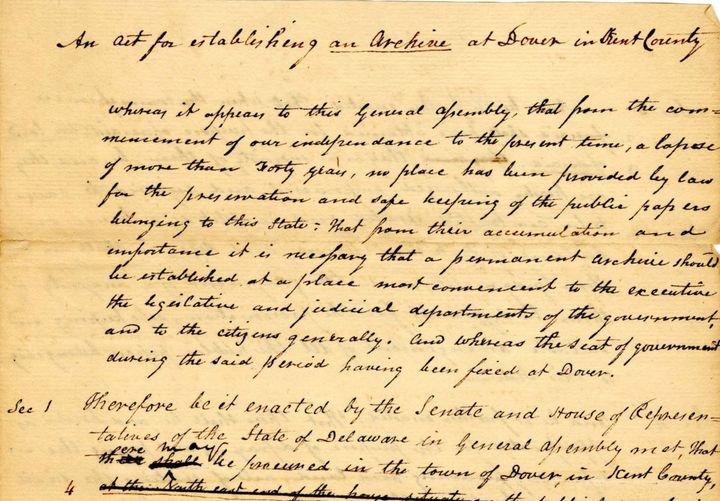
"An Act for establishing an Archive at Dover in Kent County
Whereas it appears to this General Assembly that from the commencement of our independence to the present time, a lapse of more than Forty years, no place has been provided by law for the preservation and safe keeping of the public papers belonging to this State. That from their accumulation and importance it is necessary that a permanent archive should be established at a place most convenient to the executive the legislative and judicial departments of the government and to the citizens generally. And whereas the seat of government during the said period having been fixed at Dover.``
The NHPRC is funding a project at the Delaware Archives to digitize and provide metadata of documents from the Delaware General Assembly, Legislative Papers Collection. As of the end of 2022, some 11,166 documents are currently available on the Delaware Public Archives website through The Delaware Collections. You can see more at https://archives.delaware.gov/.../history-matters.../
J.B. Lippincott: Philadelphia Publisher
 Throughout its history, the Philadelphia region has played a vital role in the history of printing, publishing, and bookselling. As more Americans were learning to read, especially during the 18th century, printing and publishing was a major industry. The Historical Society of Pennsylvania's collections reflect this history with rich documentation of notable publishing companies and booksellers.
Throughout its history, the Philadelphia region has played a vital role in the history of printing, publishing, and bookselling. As more Americans were learning to read, especially during the 18th century, printing and publishing was a major industry. The Historical Society of Pennsylvania's collections reflect this history with rich documentation of notable publishing companies and booksellers.
An NHPRC grant helped the HSP process their J. B. Lippincott Company collection, the papers of an American publishing house founded in Philadelphia, Pennsylvania, in 1836 by Joshua B. Lippincott. The company began by selling Bibles and other religious works and then successfully expanded into trade books, which became the largest portion of the business. In 1849, Lippincott acquired Grigg, Elliot and Company, a major book distribution company. The acquisition helped make the company one of the largest publishers in the United States.
The J.B. Lippincott Company records (1851-1958) consist of 94 boxes and 98 manuscript volumes, totaling 140 linear feet of archival material (included within the 94 boxes are 528 letterpress books of correspondence). The collection also includes approximately 430 books that were published and kept by the Company. The archival collection was in physical disrepair, and while called upon regularly by HSP researchers and highly rated in terms of research value, the records were difficult to handle and access by patrons and staff alike. Now that the collections have been fully inventoried and arranged, the descriptive information in the new finding aid (available both online and onsite) will improve discovery and assist researchers using the records. Further, new housing, mold removal, and other physical repairs have ensured the collection’s longevity. Access the Finding Aid at http://www2.hsp.org/collections/manuscripts/l/Lippincott3104.html
As part of the project, HSP developed a subject guide to all its related to publishing and bookselling, which you can access at https://hsp.libguides.com/c.php?g=1218933
Digging in the Southwest
What a dashing couple were the archaeologists Earl H. Morris and Anna Axtell Morris, the team who worked in the remote canyons of the American Southwest 100 years ago.
The NHPRC supported the processing of the Earl H. Morris papers at the University of Colorado Museum of Natural History, which consist of materials created by Earl Morris and his associates in the course of his work as an archaeologist in the southwestern United States and Mesoamerica. The collection is a record of archaeological field methods in the first half of the 20th century as well as the growth of archaeology as an academic discipline. More specifically, records document excavations and restoration projects at several sites in Colorado, New Mexico, and Arizona including Aztec Ruins National Monument, Chaco Canyon, Canyon de Chelly and Canyon del Muerto, Kawaika-a, Mesa Verde, and smaller sites in the areas surrounding Gallup, Shiprock, Durango, Gobernador Canyon, and the La Plata River valley. Sites in Mesoamerica include Quirigua and Chichen Itza. The sites in the United States are significant to descendent communities including the Hopi, Navajo, Ute, and Zuni nations. Access the Finding Aid at https://archives.colorado.edu/repositories/5/resources/2431
To read more about Ann's role in the digs and her influence on archaeology, go to Smithsonian magazine or the National Geographic.
The Rosebuds
 Our new favorite hockey team is the Portland Rosebuds, so named in honor of the City of Roses.
Our new favorite hockey team is the Portland Rosebuds, so named in honor of the City of Roses.
Actually there were two versions of the Rosebuds. The first Portland Rosebuds played in the Pacific Coast Hockey Association from 1914 to 1918, winning the PCHA championship in 1916 and playing the Montreal Canadiens in the 1916 Stanley Cup Final. Their win is memorialized on the Stanley Cup as "Portland Ore./PCHA Champions/1915–16" on the 1909 base, one of the permanent rings.
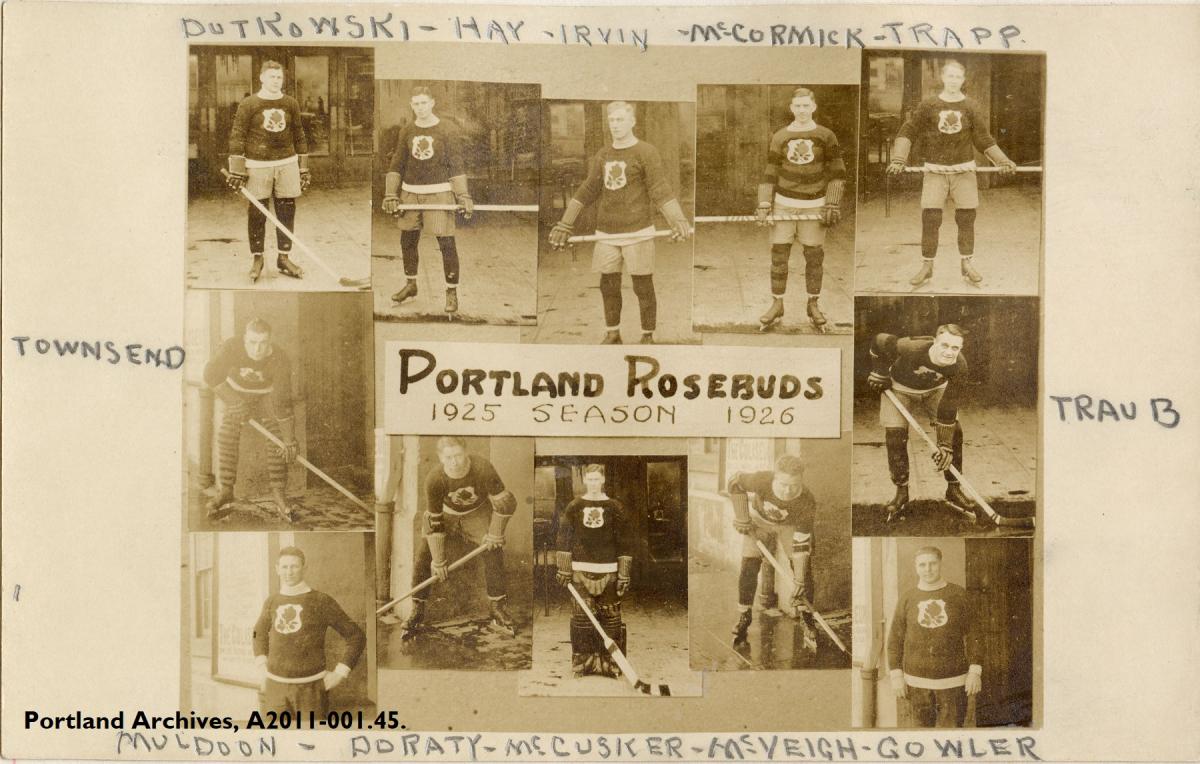 The second Rosebuds team was born when the Regina Capitals moved to Portland for the 1925–26 (and final) season of the Western Hockey League (WHL). After the collapse of the team, a deal was reached where the players of the Rosebuds were sold to form the new Chicago Black Hawks expansion franchise.
The second Rosebuds team was born when the Regina Capitals moved to Portland for the 1925–26 (and final) season of the Western Hockey League (WHL). After the collapse of the team, a deal was reached where the players of the Rosebuds were sold to form the new Chicago Black Hawks expansion franchise.
The City of Portland Archives and Records Management Division began in 1976 with the hiring of Portland’s first experienced archivist. In 1978 the program obtained a multi-year NHPRC grant designed to create a model program for implementing an integrated archival and records system at the municipal level. In 1981 the Portland Archives and Records Center was established to house this integrated program and bring the decentralized archival collection together in one place. Prior to the grant, city records were collected and stored in the basement of City Hall, individual city bureaus and other nooks and crannies in city offices.
Visit at https://www.portland.gov/archives
